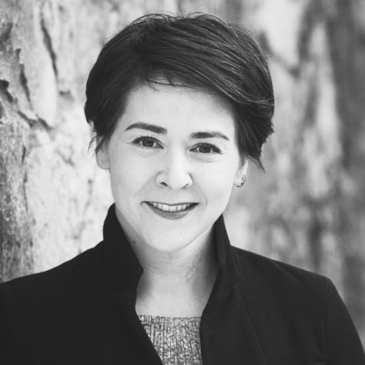Working closely with Cornell’s academic units and leadership, Adi Grabiner Keinan, Ph.D. leads and implements campus-wide educational interventions, aiming to integrate student development principles into curricula, pedagogy, and academic support services, and to foster the growth of Cornell students as engaged and responsible members and leaders of their communities. By creating optimal conditions for multi-phase processes for faculty, students, and student-facing staff, and focusing on areas such as human connection, curiosity, and pluralism, Dr. Grabiner-Keinan supports change at personal, interpersonal, and institutional levels. Dr. Grabiner-Keinan has extensive experience in a variety of educational and academic settings, working with both educators and students on identity development, dialogue, experiential learning, leadership, and collaborative change. Dr. Grabiner-Keinan holds a B.A. in History from Tel Aviv University, M.A. in Cultural Production from Brandeis University, and Ph.D. in Anthropology from Cornell University.
Course Overview
Achieving meaningful dialogue across difference is the essence of taking diversity, equity, and inclusion efforts deeper. Research shows that positive relationships at work help diminish role ambiguity, provide employees with task-related help and information, and enhance employees' identification with their work and their workgroups. In this course, you will use the tools provided to practice engaging in meaningful dialogue with others.
Participation in three 90-minute synchronous dialogue sessions is a requirement for successful completion of this course. These weekly sessions are led by trained facilitators from Cornell's Intergroup Dialogue Project and will occur on the three Tuesdays during the course from 7:00 - 8:30pm ET.
The Intergroup Dialogue Project (IDP) at Cornell University is an academic initiative grounded in theory and practice. In the last few years, IDP has developed and implemented an innovative DEI education model focusing on four key development areas drawn from existing research and internal assessment: human connection, social identity, intergroup communication, and strategic change. Its objectives are to raise awareness and to effect both behavioral and institutional change.
Key Course Takeaways
- Examine human connection and disconnection
- Explore social identity
- Practice skills for intergroup dialogue
- Complete a course journal reflecting on key teachings
- Participate in three synchronous practice sessions

How It Works
Course Authors
Lisa Nishii joined the faculty of the Human Resource Studies department at the ILR School, Cornell University after receiving her Ph.D. and M.A. in Organizational Psychology from the University of Maryland, and a B.A in economics from Wellesley College.
Nishii is an expert on inclusion in organizations. Her research focuses on the confluence of organizational practices, leadership behaviors, and climate for inclusion on individual- and group-level outcomes. Using multi-level and multi-method research designs across a number of large-scale federally funded projects, she has found that leaders play an important role in shaping inclusion. In particular, the extent to which leaders role model inclusive behaviors, clarify the learning and innovation benefits of diversity for the group’s work, and set strong norms related to interpersonal interactions, determines the inclusiveness of their workgroup climates. In turn, workgroup climate has important implications for the authenticity of the relationship that group members develop, the positive versus negative quality of relational ties, the information that is shared among group members, the extent of conflict that is experienced, and ultimately the creativity, financial performance, and turnover rates associated with these groups. Workgroup climate also impacts individual-level experiences of discrimination versus inclusion, as well as engagement and performance. She is currently developing and testing the effectiveness of training interventions for leaders as well as for in-tact teams on how to cultivate workgroup inclusion. Nishii’s earlier research focused primarily on diversity in individual-level cognition and behavior as determined by national culture.
Nishii actively publishes in top-tier journals, including the Academy of Management Review, Academy of Management Journal, Journal of Applied Psychology, Personnel Psychology, and Science, and serves on the editorial boards for AMR, AMJ, and JAP. She is currently the Chair of the Academy of Management’s Gender and Diversity in Organizations Division, and the Chair of the ILR School’s International Programs. She serves on a variety of college and university-level councils for diversity, globalization, and engaged learning. Nishii also consults with multinational companies, primarily related to diversity and inclusion and organizational assessment.
Who Should Enroll
- Team managers and supervisors
- Executives responsible for strategic culture efforts
- Anyone interested in creating an inclusive and supportive culture that promotes equal opportunities and treatment of employees
100% Online
cornell's Top Minds
career



